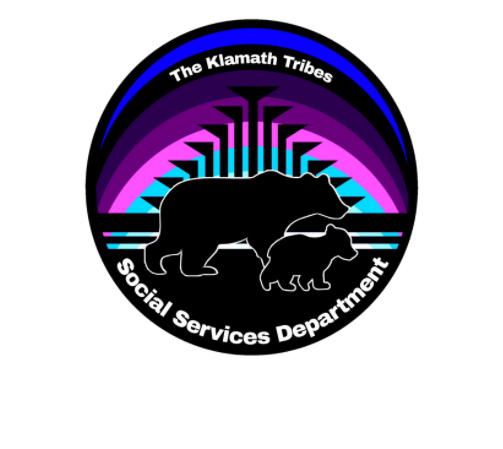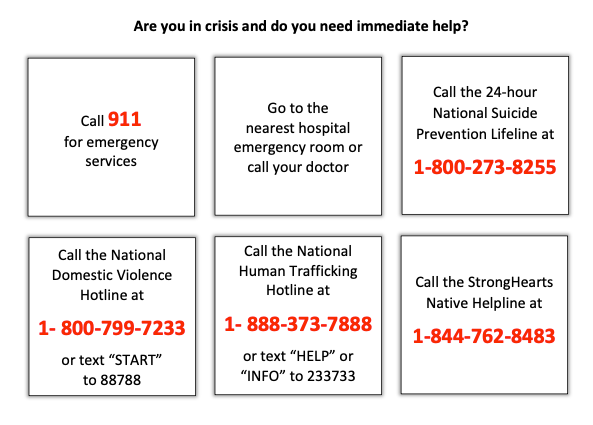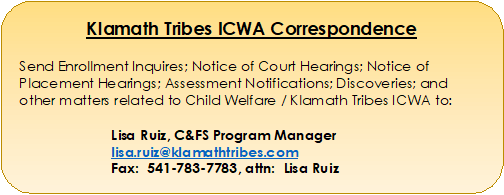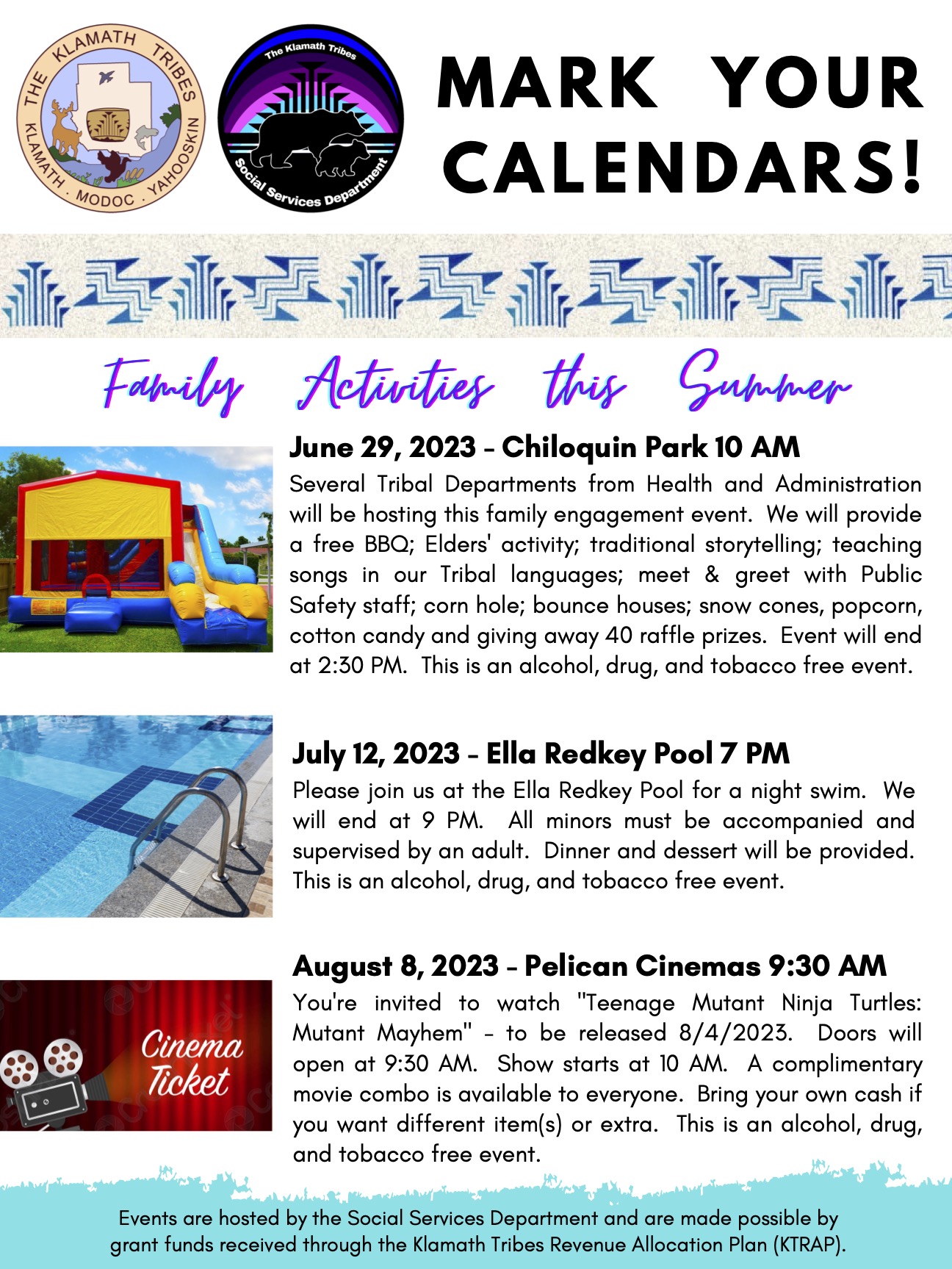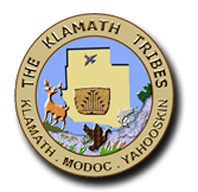• Information & Referral – Includes information about criminal justice process; victim rights, how to obtain notifications, etc. Includes referral to other victim service programs; services, supports, and resources.
• Personal Advocacy & Accompaniment – Includes advocacy/accompaniment to emergency medical care; medical forensic exam; law enforcement interview; individual advocacy; performance of medical or nonmedical forensic exam or interview or medical evidence collection. Request for immigration assistance; intervention with employer, creditor, landlord, or academic institution; transportation assistance; interpreter services; assistance with victim compensation application; and/or assistance with obtaining support, resources, or services including employment, housing, shelter services, health care, victim’s compensation, etc.
• Cultural Advocacy – Such as sweat lodge, talking circles, wellness gatherings, cultural ceremonies, etc.
• Emotional Support or Safety Services – Includes crisis intervention; on-scene crisis response; individual counseling; support groups; other therapy; emergency financial assistance; victim witness notification, outreach to victims/survivors.
• Shelter/Housing Services – Includes Emergency shelter or safe house; transitional housing; and/or relocation assistance.
• Criminal/Civil Justice System Assistance – Includes notification of criminal justice events; victim impact statement assistance; restitution assistance; civil legal assistance in obtaining protection or restraining order; civil legal assistance with family law issues; other emergency justice-related assistance. Immigration assistance; prosecution interview advocacy/accompaniment; law enforcement interview advocacy/accompaniment; criminal advocacy/accompaniment; other legal advice and/or counsel.
• Financial Assistance – Includes assistance with necessary expenditures to maintain reliable transportation; transit costs; phone costs; childcare assistance; clothing/footwear; assistance to obtain or maintain employment; legal fees; costs to obtain personal documentation; housing/rental costs; utility costs; relocation, moving, and/or storage fees; enhancement to client safety and security; and replacement or repair to Victim’s damaged property and/or belongings.
